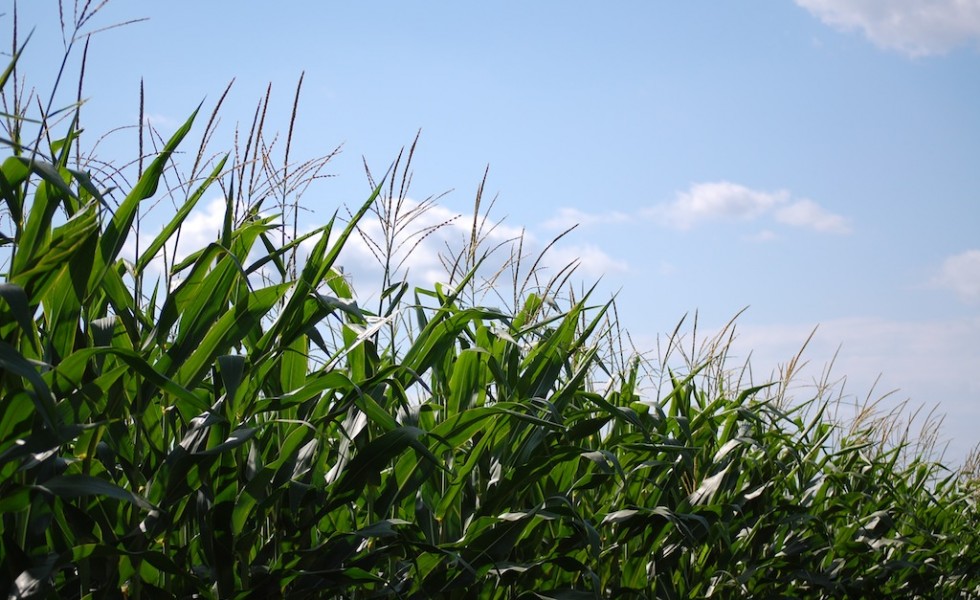More Greenhouse Gas Comes from Rural Leaders Than Rural America
Posted on May 19, 2021

While everyone uses water, Americans use it up, noted Wallace Stegner, the preeminent writer of the West, in his 1992 book of essays Where the Bluebird Sings to the Lemonade Springs.
That shrewd observation is even more accurate today.
In fact, even though we’ve dammed every river west of—and including—the Missouri, pumped most underground aquifers to the edge of emptiness, and captured every melting snowflake from the Rockies to the Sierras, much of the West remains in perpetual drought.
Worse, there is no end in sight for the region because the overwhelmed habitat now requires the overuse of water.
No one anywhere else should feel superior; we all totter on a ruinous edge of our own calamity: climate change.
And just like the Westerners who continue to fuel the urban sprawl of waterless Phoenix, Los Angeles, and San Jose, too many of us still believe climate change either isn’t a real problem or is someone else’s problem.
That’s especially so in American agriculture where even the mention of the phrase brings hoots, brickbats, and derision. Witness the latest national idea to mitigate climate change: President Joe Biden’s hope to protect 30 percent of U.S. land and coastal seas by 2030.
The yet undefined White House effort, slugged “30×30,” will require minimum effort to meet its coastal seas goal; already about 26 percent of U.S. coastal waters are protected.
The rub—especially for farmers and ranchers—comes on the land protection side because only about 12 percent of the U.S. is in what National Geographic magazine describes as “a largely natural state.” That means about 440 million acres, or an area twice the size of Texas, needs to be protected to meet a 30×30 target.
Enter the ag anger.
That single figure, 440 million acres, say many national, state, and local farm and commodity organizations, means that farmers and ranchers are obvious targets for a yet-unannounced federal “land grab” to meet the White House goals.
The fact that no such land grab is in the cards—no formal land and seas protection program has been announced by the White House—has not stopped farm groups, rural state politicians, and ag conspiracy peddlers from promoting the “land grab” baloney far and wide.
Indeed, announced Secretary of Agriculture Tom Vilsack in late April, the only aspect of 30×30 now underway by the U.S. Department of Agriculture (USDA) is the exact opposite of a land grab: USDA is pursuing “a series of outreach efforts” that ask “a series of questions” of “commodity groups, farm organizations, and others” for “their input” on “creative and innovative ways to encourage folks to participate…”
In the meantime, Vilsack emphasized, “There is no intention to take something away from folks.”
But that fact—that there is no 30×30 “land grab” in the works—did not stop “(g)overnors of 15 Midwestern states including Iowa, Nebraska, and South Dakota,” from sending a “letter to President Biden… saying they have not been adequately consulted on the program…”
Most likely because—once again—there is no “program.”
A few days later, however, Vilsack had to again squash completely phony press stories about how the Biden Administration hoped to drastically reduce America’s meat consumption as part of its recently announced climate change policy.
In fact, “Biden’s commitment didn’t include any targets for agriculture or any other sector,” reported the authoritative Agri-Pulse April 27.
Mostly because there is no formal climate change program yet.
And, it seems, there will never be one if many of today’s ag leaders and rural politicians continue to peddle their claptrap about “land grabs” and hamburgers. But that’s what their deceits are really about; they like it just the way it is and tough luck to all who follow.
Which brings us back to Stegner’s experience of how most Americans see their role in the environment: we use it up. And as we do, we don’t want to talk about it.
Not honestly, anyway.
© 2021 ag comm
Share This